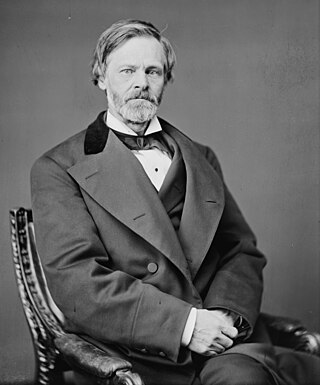
In law, a trust refers to a relationship in which the owner of property gives it to a designated entity, usually described as a trustee. The trustee has a duty to safeguard and use the assets of the trust solely for the benefit of another person or group of persons until distribution, pursuant to the provisions of the trust. In the English common law tradition, the party who entrusts the property is known as the "settlor", the party to whom the property is entrusted is known as the "trustee", the party for whose benefit the property is entrusted is known as the "beneficiary", and the entrusted property itself is known as the "corpus" or "trust property". A testamentary trust is an irrevocable trust that is established and funded pursuant to the terms of a deceased person's will. An inter vivos trust is a trust created during the settlor's lifetime.

The Sixteenth Amendment to the United States Constitution allows Congress to levy an income tax without apportioning it among the states on the basis of population. It was passed by Congress in 1909 in response to the 1895 Supreme Court case of Pollock v. Farmers' Loan & Trust Co. The Sixteenth Amendment was ratified by the requisite number of states on February 3, 1913, and effectively overruled the Supreme Court's ruling in Pollock.

The Sherman Antitrust Act of 1890 is a United States antitrust law which prescribes the rule of free competition among those engaged in commerce. It was passed by Congress and is named for Senator John Sherman, its principal author.
Halsbury's Laws of England is an encyclopaedia of the law in England and Wales. It has an alphabetised title scheme for the areas of law, drawing on authorities including Acts of Parliament of the United Kingdom, Measures of the Welsh Assembly, UK case law and European law. It is written by or in consultation with experts in the relevant field.

Trustee is a legal term which, in its broadest sense, is a synonym for anyone in a position of trust and so can refer to any individual who holds property, authority, or a position of trust or responsibility for the benefit of another. A trustee can also be a person who is allowed to do certain tasks but not able to gain income. Although in the strictest sense of the term a trustee is the holder of property on behalf of a beneficiary, the more expansive sense encompasses persons who serve, for example, on the board of trustees of an institution that operates for a charity, for the benefit of the general public, or a person in the local government.
In law, a person is acting in a position if they are not serving in the position on a permanent basis. This may be the case if the position has not yet been formally created, the person is only occupying the position on an interim basis, the person does not have a mandate, or if the person meant to execute the role is incompetent or incapacitated.

William Henry Moody was an American politician and jurist who held positions in all three branches of the Government of the United States. He represented parts of Essex County, Massachusetts in the United States House of Representatives from 1895 until 1902. He then served in the cabinet of President Theodore Roosevelt as Secretary of the Navy and Attorney General before Roosevelt appointed him to the United States Supreme Court in 1906. He retired from the Court for health reasons after a brief tenure of just less than four years. A progressive like Roosevelt, he opposed racial segregation and spoke out in favor of African-American civil rights.
Torcaso v. Watkins, 367 U.S. 488 (1961), was a United States Supreme Court case in which the court reaffirmed that the United States Constitution prohibits states and the federal government from requiring any kind of religious test for public office, in this specific case as a notary public.

Putnam's Monthly Magazine of American Literature, Science and Art was a monthly periodical published by G. P. Putnam's Sons featuring American literature and articles on science, art, and politics.

Scout Law is a set of codes in the Scout movement. Since the publication of Scouting for Boys in 1908, all Scouts and Guides around the world have taken a Scout Promise or oath to live up to the ideals of the movement and have subscribed to the Scout Law. The wording of the promise and law have varied over time and among Scouting organizations.

The Panic of 1910–1911 was a minor economic depression that followed the enforcement of the Sherman Antitrust Act, which regulates the competition among enterprises, trying to avoid monopolies and, generally speaking, a failure of the market itself. The short-term panic lasted approximately 1 year and led to a drop of the major U.S. stock market index by ~26%. It mostly affected the stock market and business traders who were smarting from the activities of trust busters, especially with the breakup of the Standard Oil Company and the American Tobacco company.

Samuel Dennis Warren II was an American lawyer and businessman from Boston, Massachusetts.

English trust law concerns the protection of assets, usually when they are held by one party for another's benefit. Trusts were a creation of the English law of property and obligations, and share a subsequent history with countries across the Commonwealth and the United States. Trusts developed when claimants in property disputes were dissatisfied with the common law courts and petitioned the King for a just and equitable result. On the King's behalf, the Lord Chancellor developed a parallel justice system in the Court of Chancery, commonly referred as equity. Historically, trusts have mostly been used where people have left money in a will, or created family settlements, charities, or some types of business venture. After the Judicature Act 1873, England's courts of equity and common law were merged, and equitable principles took precedence. Today, trusts play an important role in financial investment, especially in unit trusts and in pension trusts. Although people are generally free to set the terms of trusts in any way they like, there is a growing body of legislation to protect beneficiaries or regulate the trust relationship, including the Trustee Act 1925, Trustee Investments Act 1961, Recognition of Trusts Act 1987, Financial Services and Markets Act 2000, Trustee Act 2000, Pensions Act 1995, Pensions Act 2004 and Charities Act 2011.
Swift & Co. v. United States, 196 U.S. 375 (1905), was a case in which the United States Supreme Court ruled that the Commerce Clause allowed the federal government to regulate monopolies if it has a direct effect on commerce. It marked the success of the Presidency of Theodore Roosevelt in destroying the "Beef Trust". This case established a "stream of commerce" argument that allows Congress to regulate things that fall into either category. In particular it allowed Congress to regulate the Chicago slaughterhouse industry. Even though the slaughterhouse supposedly dealt with only intrastate matters, the butchering of meat was merely a "station" along the way between cow and meat. Thus, as it was part of the greater meat industry that was between the several states, Congress can regulate it. The Court's decision halted price fixing by Swift & Company and its allies.
Hodel v. Irving, 481 U.S. 704 (1987), is a case in which the U.S. Supreme Court held that a statute ordering the escheat of fractional interests in real property which had been bequeathed to members of the Oglala Sioux tribe was an unconstitutional taking which required just compensation.

Henry Billings Brown was an American jurist who served as an associate justice of the Supreme Court of the United States from 1891 to 1906.

A grant, in law, is a transfer of property, generally from a person or other entity giving the property to a person or entity receiving the property.

The 1902 kosher meat boycott was a boycott of New York City kosher butchers on the part of American Jewish women in response to a coordinated increase in price of kosher meat from 12 to 18 cents a pound. This increase was significant enough that many Jewish families could no longer afford to buy meat. The protests, led mainly by immigrant Jewish women on Manhattan’s Lower East Side, though controversial in their often-violent tactics, were largely successful and resulted in the lowering of the price of meat to 14 cents a pound.
The Seminole's Trust is a 1910 American silent film produced by Kalem Company and directed by Sidney Olcott. It's a story of Seminole Indians.












